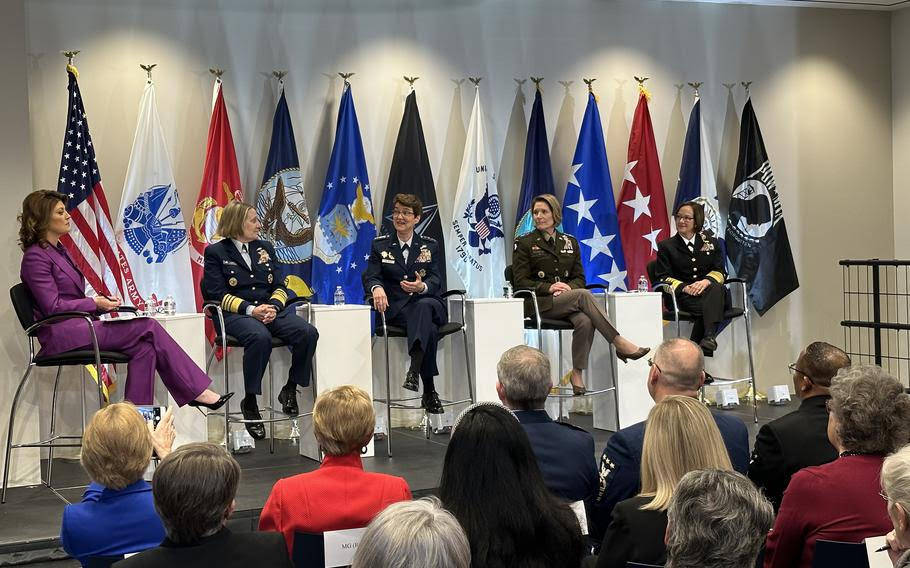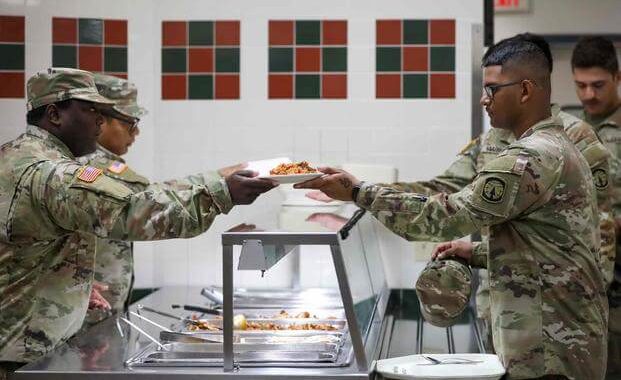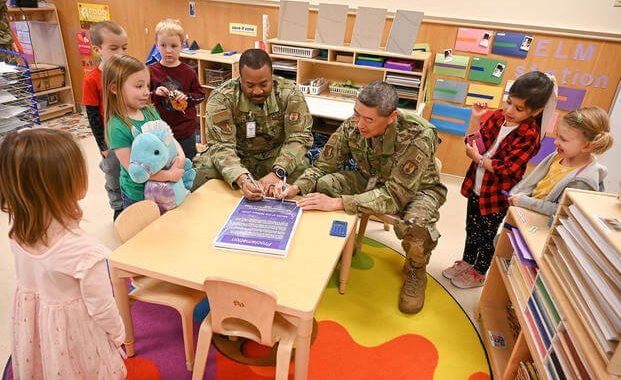Female 4-stars discuss sexism in the service, say the military is ‘much better’ for women now
5 min read
Coast Guard Commandant Adm. Linda Fagan, Air Force Gen. Jacqueline Van Ovost, Army Gen. Laura Richardson, and Navy Adm. Lisa Franchetti speak Monday, March 6, 2023, at the “Beyond Firsts: Powering the Future Force” panel discussion at the Military Women’s Memorial in Arlington, Va. In celebration of Women’s History Month, the top female military officers gathered for the first time to share their unique perspectives and experiences as service members, the importance of recruiting and retaining the best talent, and the impacts of having a diverse, inclusive warfighting force.
WASHINGTON — All four of the U.S. military’s four-star female officers gathered in public Monday for the first time to talk about the sexism that they have experienced in the service and how far women still must go before they’re fully integrated members of the armed forces.
Army Gen. Laura Richardson, Air Force Gen. Jacqueline Van Ovost, Navy Adm. Lisa Franchetti and Coast Guard Commandant Adm. Linda Fagan were panelists for the discussion called “Beyond Firsts: Powering the Future Force” held at the Military Women’s Memorial in Arlington, Va. All four were promoted to four-star generals and admirals in their respective services within the last two years.
“It has truly been a journey,” said Fagan, who entered the Coast Guard in 1981 and became commandant in mid-2022.
“In the 75 years since we have had the opportunity to serve, we certainly have come a long way,” said Van Ovost, who has been in charge of U.S. Transportation Command since October 2021. “Our progress has been accelerated, but we have a way to go still.”
All four women had plenty to say about experiencing resistance on their rise through the ranks. They all entered service in the 1980s, an era when women were still barred from serving in combat roles and most leadership positions were filled by men. And sometimes those men did not make them feel welcomed.
“I got to my first ship and my chief engineer … said, ‘I don’t think women should be on ships. I don’t think you should be here, and I think I’m going to make sure you fail,’” said Franchetti, who joined the Navy in 1985. “That was pretty eye-opening that someone would say that.”
Franchetti, who has been the vice chief of naval operations since September 2022, said: “My team found out about it … and they basically set out to make sure that didn’t happen and that he was wrong. We basically made it look like he was the failure for not wanting us to be there.”
She said, at one point, the sexist treatment that she experienced almost persuaded her to leave the Navy for a career as a massage therapist.
“I was definitely going to get out,” Franchetti said. “In the end, what it really came down to was the Navy had everything I wanted. I got to travel, I got a new job every two years … and I really liked our mission.”
Richardson, the first woman to take command of U.S. Army North in 2019 and commander of U.S. Southern Command since 2021, said there are plenty of examples in her area of responsibility — Latin America and the Caribbean — of female leaders becoming more commonplace.
“In this region, we have got two women presidents, we have two women vice presidents, we have two women ministers of defense, we have got the only woman chief of defense in the world right now, from Jamaica,” Richardson said. “So, we have some great shining examples.”
It wasn’t until 1948 that American women were allowed to be full-time members of the military during peacetime. Before that, they could only serve in times of conflict. It would be another 68 years, however, before women could serve in combat roles.
By 2021, there were 232,000 female service members, representing 17.3% of the active-duty U.S. military, according to the Pentagon’s most recent figures.
Each of the female officers on the panel Monday expressed a deep gratitude for progress in gender parity, as well as some frustration that progress always comes slowly.
For example, there are still no women who are Navy SEALs. The first woman to become an Army Green Beret didn’t happen until 2020. Moreover, only a handful of women have successfully trained to become Army Rangers.
By the time that Van Ovost became an Air Force pilot in the 1980s, she was one of the military’s few female flyers. She pointed out Monday that progress for women is moving even slower in other parts of the world.
“The Middle East is slightly different,” she said, eliciting laughter from the audience. “They’re a few decades behind us, but there is great hope. I was in Saudi Arabia … there are women now driving. There are women going to school. There are women entrepreneurs. They can decide to work without having their guardians sign them up.”
Dozens of young women in the military attended the panel discussion. Some of them asked Van Ovost, Richardson, Franchetti and Fagan how they might carry the torch for women when the military still struggles to deal with discrimination and sexual assault. Last year, a Pentagon study showed a record number of sexual assaults in the military in 2021 — about 36,000 incidents. The study said 8.4% of women reported being sexually assaulted on duty.
“All of the services have been on a journey around sexual harassment, sexual assault, bullying, and I consider where we are today — versus where we were eight or 10 years ago — a much better position,” Fagan said, noting she successfully encouraged her daughter to join the Coast Guard. “I would not have brought or encouraged my daughter to come in if I didn’t believe” the military culture is safer now.
Some of the officers on the panel noted other difficult challenges for female troops such as trouble finding child care and female-specific uniforms.
“If [women] were fully included, we would have the armor that’s built for a woman’s body, based on how we carry the weight,” Van Ovost said. “We’d have flight suits that fit us and uniforms that would fit us, so we wouldn’t have to be accommodated.”
“We are just going to keep chipping away at it,” she added.





